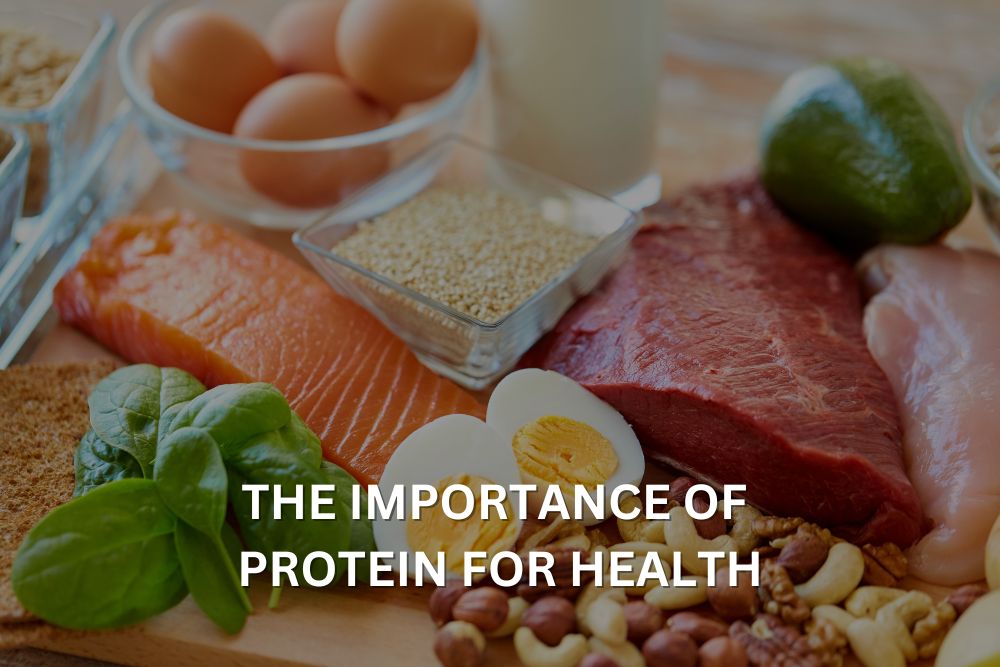How Your Digestive Health May Impact Alzheimer’s Disease Risk

Discover the fascinating link between your gut health and cognitive function from award-winning UK dietitian Gillian Killiner. Drawing from 30 years of clinical experience and groundbreaking research, learn how specific gut bacteria influence brain health and may help prevent Alzheimer’s disease. From beneficial bacterial strains to practical dietary strategies, this evidence-based guide reveals how to support your cognitive wellness through gut health. Featuring real client success stories and actionable steps you can take today. Book your consultation at 121 Dietitian’s Hollywood clinic or online to start your journey toward optimal brain health through personalised nutrition.
The Hidden Link Between Gut Health and Micronutrient Deficiencies in Diabetes: How to Improve Blood Sugar Control Naturally

Explore the vital link between gut health and diabetes. Learn how your gut microbiome impacts nutrient absorption and blood sugar control with expert tips from 121 Dietitian.
Choosing the Right Health Professional – A Guide to Ensuring Effective, Evidence-Based Care

In today’s world, the vast number of health and wellness services available can make it difficult to find the right professional for your needs.
The Express Program
The Express Program – Simple, Effective Health Solutions Not every health concern requires a complex plan. For those seeking straightforward, tailored advice, the Express Program is the perfect choice. In just 2 sessions, you’ll receive the expert guidance you need, all for an unbeatable price of £120. The program includes: 30-minute consultation – Available online or over the phone, providing personalised advice for your simple health concern. Follow-up summary – A clear, concise recap of our discussion, ensuring you have all the necessary information at your fingertips. 15-minute phone review – A quick check-in to ensure everything is going smoothly and you’re on track. This no-nonsense, highly effective program is designed to give you results without overwhelming you. Whether it’s improving your diet, managing a health issue, or optimising your lifestyle, the Express Program helps you take action today. Book your session now below and start your journey to better health: Book Now FAQ Section: The Express Program Welcome to the FAQ section for our Express Program. Here, you’ll find answers to common questions about this streamlined and effective health solution. If you have further questions, please don’t hesitate to reach out. What is the Express Program? The Express Program is a simple and effective health solution offering personalised advice in a single session. It’s designed for those seeking straightforward guidance without the need for a complex plan. What does the Express Program include? -30-minute Consultation: Available online or over the phone, providing tailored advice for your specific health concern.– Follow-up Summary: A clear recap of the discussion to ensure you have all the necessary information.– 15-minute Phone Review: A quick check-in to ensure you’re on track and everything is going smoothly. Who is the Express Program suitable for? The Express Program is ideal for anyone looking to improve their diet, manage a simple health issue, or optimise their lifestyle with straightforward advice. How much does the Express Program cost? The program is priced at £120, providing excellent value for personalised health guidance. How can I book a session for the Express Program? You can book your session through our website. Simply click on the “Book Here” link provided in the program details. Is the consultation available online? Yes, the 30-minute consultation can be conducted online or over the phone, offering flexibility to suit your schedule. Can I receive a detailed follow-up after the session? Yes, after your consultation, you will receive a follow-up summary that clearly outlines the key points discussed. What if I have additional questions after my session? The program includes a 15-minute phone review to address any additional questions and ensure you’re on track. What should I prepare before my consultation? It’s helpful to have a 3 day food diary and any specific goals you wish to discuss during your consultation. How can I contact you if my questions aren’t answered here? If your questions remain unanswered, please reach out to us via email at info@121dietitian.com, and we’ll be happy to assist you further. For more detailed information, visit our website or get in touch with us directly. We look forward to helping you on your journey to better health! Book Now
The Importance of Protein for Health

Protein is one of the most essential nutrients your body needs to function optimally.
The Role of Hydration in Maintaining a Healthy Gut

The Role of Hydration in Maintaining a Healthy Gut While we often focus on diet and exercise when it comes to health, hydration is an essential yet often overlooked factor that plays a vital role in gut function and overall well-being. As a Dietitian I see multiple people each week who are dehydrated drinking too little or the wrong types of liquids for optimal health, so I thought it would be good to explore why staying hydrated is so important for your gut and answer some commonly asked questions. Why is Hydration Important for Gut Health? Water is essential for nearly every function in the body, and your digestive system is no exception. Proper hydration supports digestion, nutrient absorption, and waste elimination. Without enough water, these processes can slow down or become inefficient, leading to discomfort and potential health issues. Here are some key ways hydration impacts your gut: 1. Aids Digestion: Water helps break down food so that your body can absorb nutrients more effectively. It also keeps the digestive process running smoothly by softening food as it moves through the gastrointestinal tract. 2. Prevents Constipation: Dehydration is one of the leading causes of constipation. When your body lacks water, it absorbs more fluid from your stool, making it harder and more difficult to pass. 3. Supports Mucosal Lining: The mucosal lining of your gut acts as a barrier to protect against harmful bacteria and toxins. Staying hydrated helps maintain this protective layer. 4. Balances Gut Microbiome: Proper hydration promotes a balanced gut microbiome by supporting the growth of beneficial bacteria while flushing out toxins and waste products. 5. Regulates Bowel Movements: Water helps maintain regular bowel movements by keeping stool soft and easy to pass, reducing the risk of digestive discomfort. 6. Assists weight management: It is all too easy to reach for a snack or meal when what you really need is a drink. Hunger can actually be dehydration. Drinking correct amounts will ensure you are not consuming excess energy contributing to excess weight. How Much Water Do You Need? The amount of water you need varies depending on factors like age, activity level, climate, and overall health. A general guideline is to drink at least 6-8 glasses (1.5-2 litres) of water per day. However, if you’re physically active or live in a hot climate, you may need more. I have not included athletes in this blog, but it is essential for them to consume the correct volume of fluids and electrolytes if they are active for over 60 to 90 minutes, depending on the conditions and the nature of the activity. Signs You Might Be Dehydrated Dehydration can affect your gut health without you realising it. Watch out for these signs: Dry mouth or throat Dark yellow urine Fatigue or low energy Headaches Constipation Bloating or digestive discomfort If you notice any of these symptoms, increasing your water intake could help improve your gut health. Tips for Staying Hydrated Here are some practical tips to ensure you stay hydrated throughout the day: Start Your Day with Water: Drink a glass of water first thing in the morning to kickstart your metabolism and rehydrate after sleep. Carry a Reusable Bottle: Keep a water bottle with you during the day as a reminder to drink regularly. Eat Water-Rich Foods: Incorporate foods like cucumbers, watermelon, oranges, and lettuce into your diet for extra hydration. Set Reminders: Use phone alarms or apps to remind yourself to drink water at regular intervals. Flavour Your Water: If plain water feels boring, add slices of lemon, ginger, cucumber, or mint for a refreshing twist. Drink Before Meals: Having a glass of water before meals not only aids digestion but also helps control portion sizes by promoting satiety. Limit Dehydrating Drinks: Reduce consumption of caffeine and alcohol as they can dehydrate you by increasing fluid loss. Reusable bottle and flask from Amazon Shop: Glass bottles or Flasks Common Questions About Hydration and Gut Health Can drinking too much water harm my gut? Yes, excessive water intake can dilute stomach acid, which may impair digestion temporarily. Stick to recommended daily amounts unless advised otherwise by a healthcare professional. Does tea or coffee count towards hydration? Yes, but be mindful that caffeine has diuretic effects when consumed in large amounts. Herbal teas or decaffeinated options are better choices for hydration after 3-4 caffeinated drinks. Decaffeinated Tea Can dehydration cause bloating? Yes! Dehydration can slow digestion and lead to gas build-up in the intestines, causing bloating or discomfort. Is sparkling water good for gut health? Sparkling water can be hydrating; however, some people find it causes bloating or gas due to carbonation. Listen to your body’s response. Watch for an excessive mineral content as high sodium levels can be dehydrating. Fizzy Dash Water How does hydration affect my microbiome? Proper hydration supports a healthy balance of gut bacteria by aiding digestion and flushing out harmful substances that could disrupt the microbiome. The Role of Diet in Hydration While drinking water is essential, your diet also plays a role in staying hydrated: Include fruits like watermelon, strawberries, and oranges. Add vegetables like cucumbers, celery, and courgettes. Opt for soups or broths as part of meals. Avoid salty meals and snacks that can dehydrate you by increasing fluid retention needs. When to Seek Professional Advice If you’re experiencing persistent digestive issues despite staying hydrated or have difficulty maintaining adequate fluid intake due to medical conditions, it is good to consult with a healthcare professional or dietitian for personalised advice. Hydration is one of the simplest yet most effective ways to support your gut health and overall well-being. By drinking enough water each day and incorporating hydrating foods into your diet, you can improve digestion, maintain regular bowel movements, and support a healthy microbiome. If you’d like to learn more about how hydration fits into maintaining optimal gut health or need personalised guidance on improving your diet for better digestion, consider exploring my online course available here This is